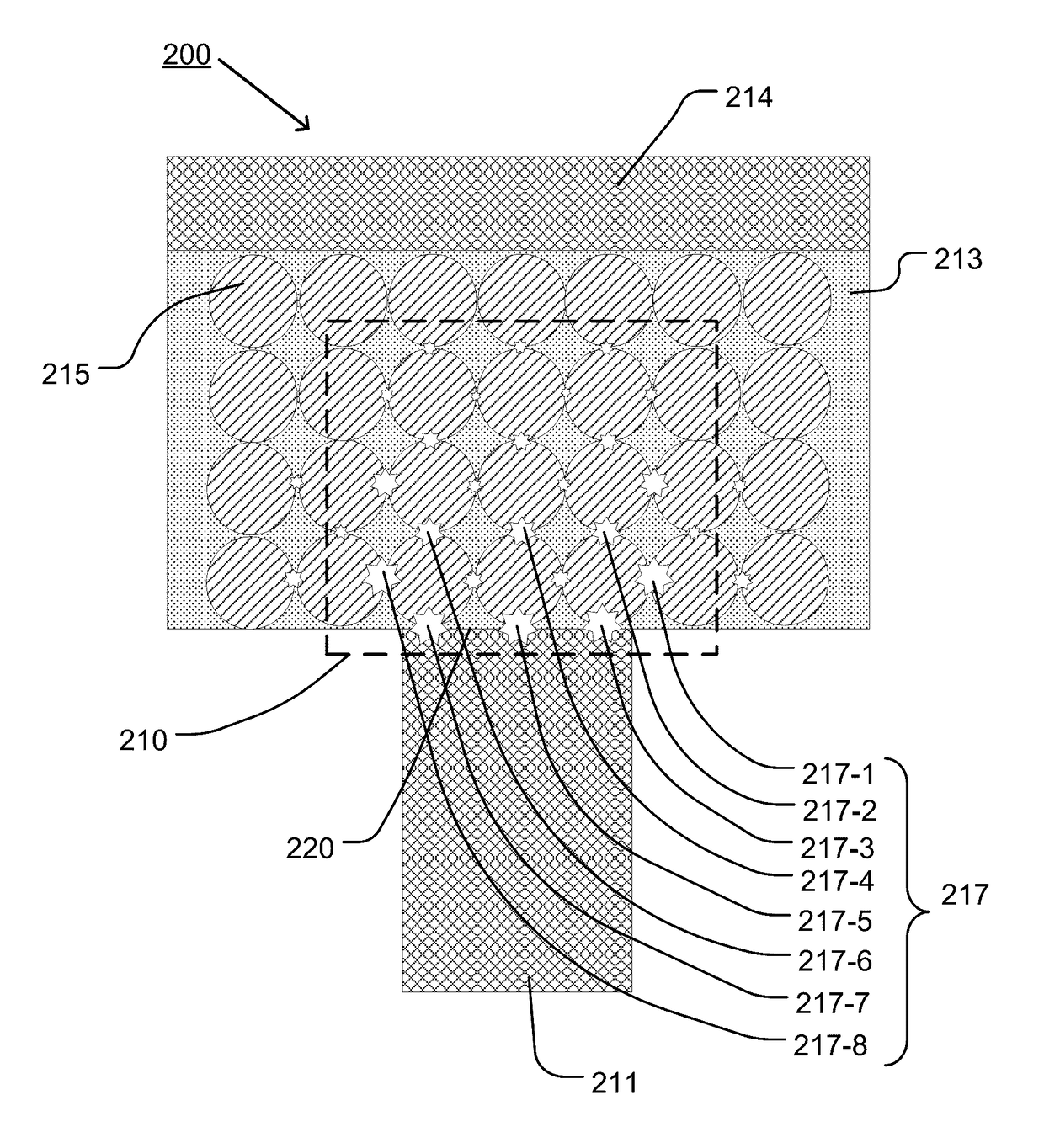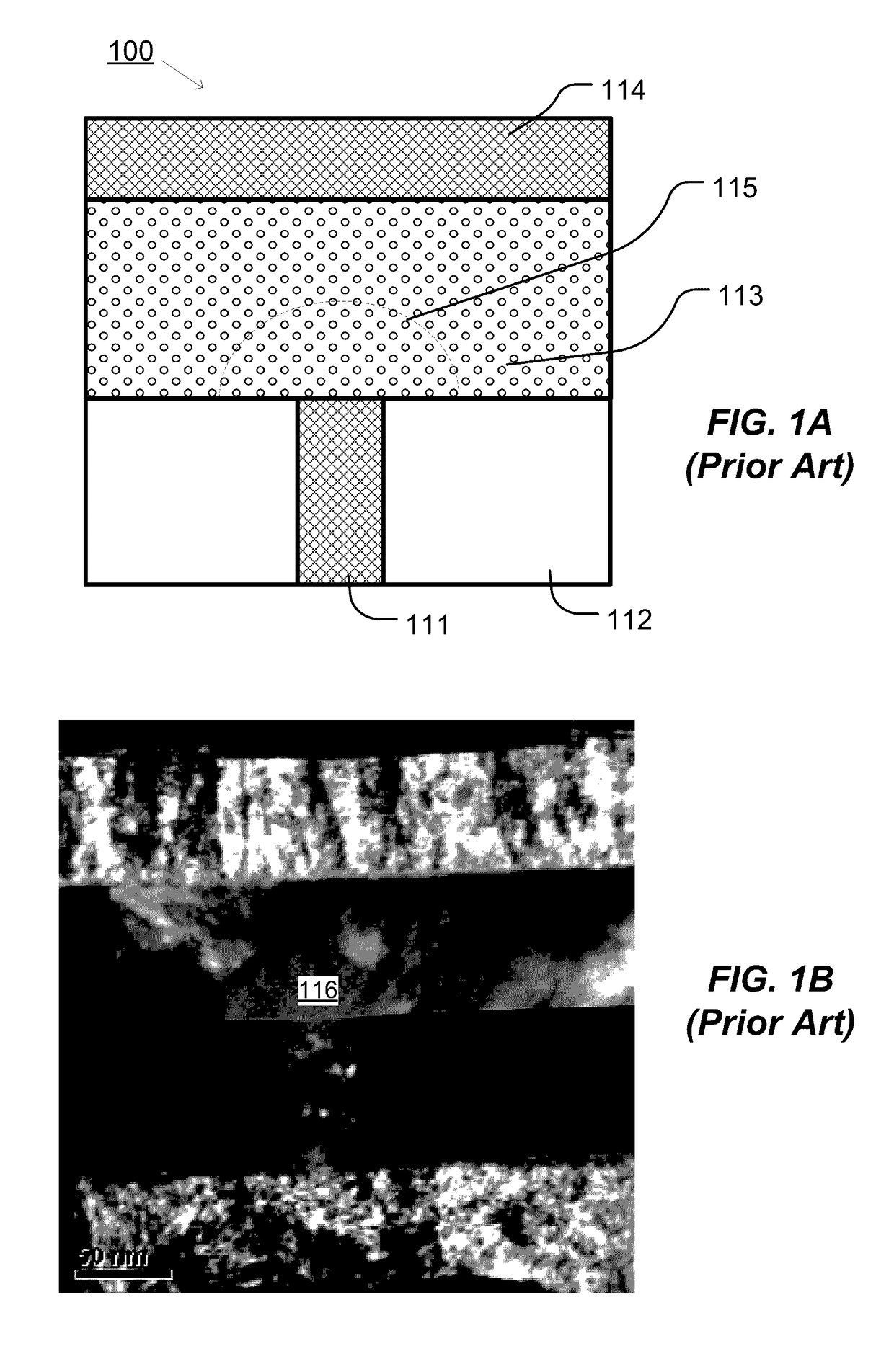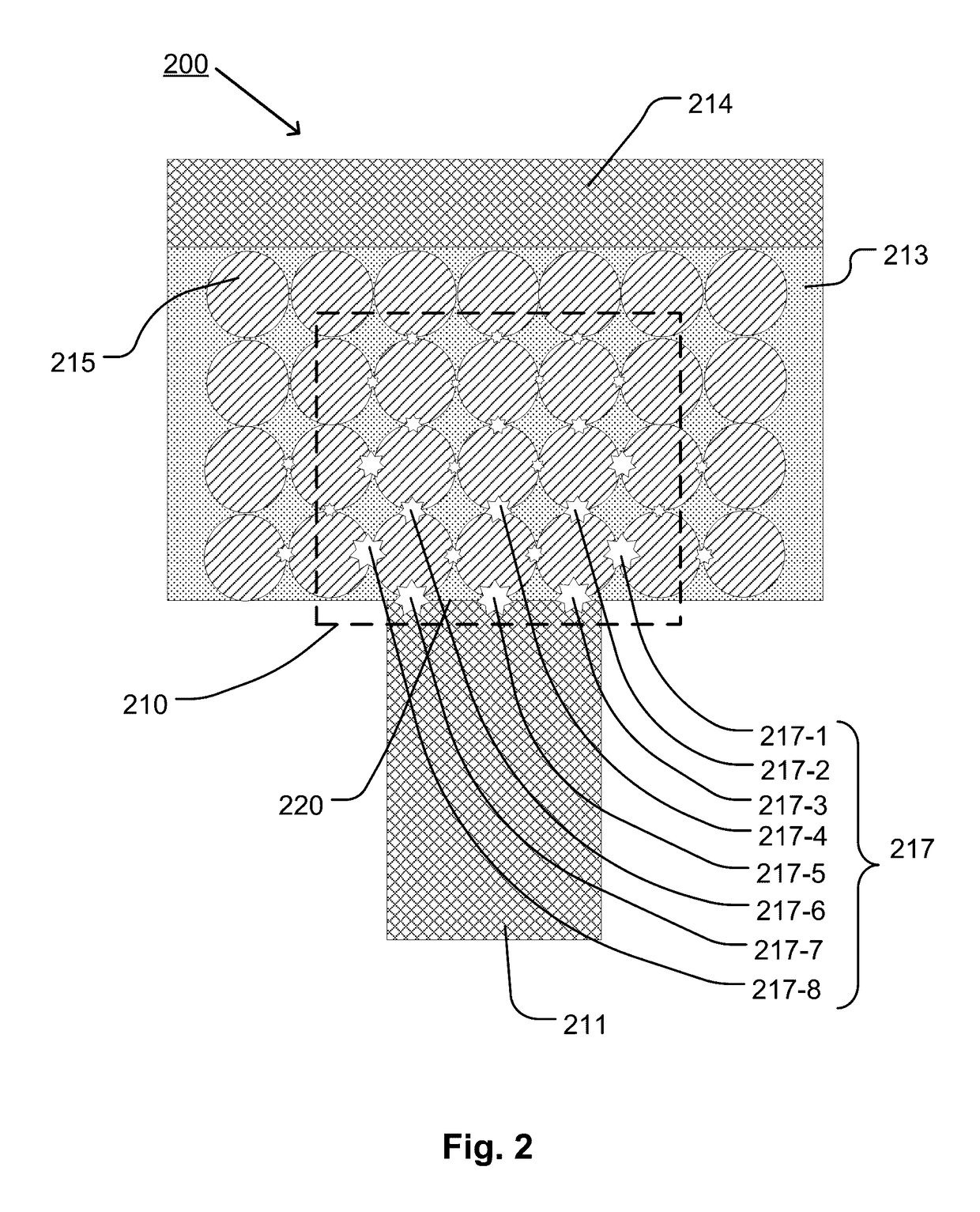Phase change memory with inter-granular switching
a phase change memory and intergranular switching technology, applied in the field of memory devices, can solve the problems of increasing electrical and mechanical reliability problems, increasing contact area, increasing manufacturing costs, etc., and achieve the effect of reducing increasing the electrical resistance of the conglomerate material
- Summary
- Abstract
- Description
- Claims
- Application Information
AI Technical Summary
Benefits of technology
Problems solved by technology
Method used
Image
Examples
Embodiment Construction
[0039]A detailed description of embodiments of the technology is provided with reference to the FIGS. 2-19.
[0040]FIG. 2 illustrates a memory cell 200 having a conglomerate material including nanocrystalline grains 215 embedded in an amorphous matrix 213. Memory cell 200 includes a first electrode 211 having an electrode surface 220 contacting the conglomerate material, and a second electrode 214 on the conglomerate material. Inter-grain boundaries 217-1, 217-2, . . . and 217-8, collectively indicated 217, are between nanocrystalline grains 215. To simplify the illustration, not all inter-grain boundaries are given their own numeral. The nanocrystalline grains 215 can have a stoichiometry different than the amorphous matrix 213.
[0041]First and second electrodes 211 and 214 may comprise, for example, TiN or TaN. Alternatively, the first and second electrodes 211 and 214 may each be W, WN, TiAlN or TaAlN, or comprise, for further examples, one or more elements selected from the group c...
PUM
| Property | Measurement | Unit |
|---|---|---|
| grain size | aaaaa | aaaaa |
| thickness | aaaaa | aaaaa |
| diameter | aaaaa | aaaaa |
Abstract
Description
Claims
Application Information
 Login to View More
Login to View More - R&D
- Intellectual Property
- Life Sciences
- Materials
- Tech Scout
- Unparalleled Data Quality
- Higher Quality Content
- 60% Fewer Hallucinations
Browse by: Latest US Patents, China's latest patents, Technical Efficacy Thesaurus, Application Domain, Technology Topic, Popular Technical Reports.
© 2025 PatSnap. All rights reserved.Legal|Privacy policy|Modern Slavery Act Transparency Statement|Sitemap|About US| Contact US: help@patsnap.com



